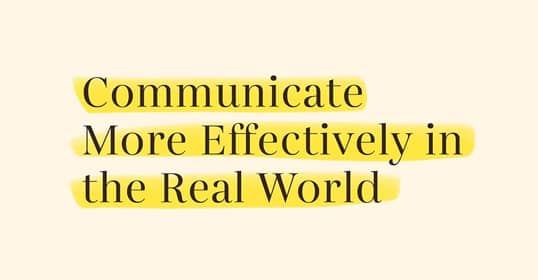Beneath is an excerpt tailored from the introduction to Psychology and the Promethean Will by William H. Sheldon, which was revealed in 1936. Its evocative description of how most individuals permit themselves to sink into boring, complacent rot in middle-age and galvanizing concept of growing an ever-burning “Promethean thoughts,” has served as a touchstone for us in retaining the desire to proceed studying, rising, pondering, and searching for as we become old. Could it likewise encourage you, to borrow Dylan Thomas’ phrasing, to rage, rage towards what Sheldon calls “the dying again of the mind.”
William James used to counsel that even the maturest minds could not but have developed a tenth of the useful potentialities of the nice human forebrain, and later psychologists have proven that if as soon as the behavior and the need are established, increasing horizons and the keen pursuit of data could as readily characterize the later as the sooner a long time of life. But psychological progress continues to be so uncommon within the later a long time {that a} matured mind stays for most individuals an irregular conception. The times of youth teem with fragments of dwelling information; with dawning philosophies; morning goals; plans. However the human thoughts at forty is often vulgar, smug, deadened, and wastes its hours. In all places grownup brains appear to resemble blighted timber which have died within the higher branches, however but cling to a struggling inexperienced wisp of life in regards to the decrease trunk.
There are a number of who go on towards full psychological progress. At twenty these can not ordinarily be distinguished from different younger women and men. Even at twenty-five no secure prediction could be made; however normally at thirty-five it may be gathered from half a dozen sentences that that here’s a thoughts nonetheless rising. Pursuits are increasing, the philosophy is tentative and delicate, there may be an eagerness for brand new information, there are visions, goals, interpersonal enthusiasms. Personalities exhibiting these qualities at thirty-five usually proceed their progress all through the second half of life, not sometimes gathering headway and energy even within the remaining decade. For such people a yr within the fifties and sixties is price in intrinsic feeling worth greater than a yr of youth, when conflicting life wishes had been nonetheless altogether at loggerheads and the longer term was a jagged welter of hopes and fears. These few reside extra for the second than for the primary half of life. They’re happier and stronger in previous age than in youth.
Why solely so few attain full human consciousness, whereas hundreds of apparently regular personalities throughout them abruptly cease rising and go to seed within the second, third, or fourth decade, is starting to loom as crucial query in human affairs. The observant scholar of life watches a launching into the world of wave upon wave of younger human beings, every in a bit of flare of heroic parental sacrifice; he follows the childhood years as rising minds seize the world with keen exhilaration; sees the psychological flame burn brightly by early youth; feels it flicker a bit of at in regards to the time of faculty; after which ultimately he should stand by helplessly whereas the younger thoughts struggles in little tragic suits and begins as if caught within the grip of an unseen suffocating drive, solely to die again in the long run to the boring smudge of a coal that didn’t catch.
The mind appears to develop functionally solely to the purpose simply past the upkeep of an existence, then hesitates a bit of, and seems to settle again to a degree. It’s as if a powerful runner had been to begin a race at his finest velocity, however upon trying about and discovering that every one the opposite runners appear crippled or sick, or carry heavy burdens, hesitates for a bit of after which drops again to the frequent tempo, solely to seek out after a time that now he can also solely crawl. One thoughts develops the place many merely adapt to circumstance. That is the tragedy of the waste of mind.
The Voice of Prometheus
But someplace within the deeper strata of human consciousness a voice persists which frequently whispers, “No, this isn’t ok, there may be someplace one thing higher.” At moments there involves maybe each human being a well-nigh painful sense of the nearness of richer and broader human happiness. We deeply really feel that some relentless, invisible, but not fairly insurmountable barrier bars the best way to an inexpressibly higher life. The clearness and vividness of this sense of the higher risk should fluctuate inside extraordinarily vast limits in several minds; in some it’s a passing, momentary, uncommon and fairly unimportant temper; in some it by no means breaks by in any respect to full consciousness. However in a number of minds it turns into a dominant temper, and a pal I as soon as knew used to check with this temper because the hour of the sumptuous urge. One other all the time calls it the voice of Prometheus, and minds wherein it’s dominant he calls Promethean minds.
It’s the voice of Prometheus that so typically dies away throughout early center age.
He who would search to know the Promethean imaginative and prescient should be taught to suppose within the grooves and patterns of those three conventional disciplines [psychology, religion, and medicine] by which Promethean women and men have tried to meddle with human future, thereby to surmount the barrier which appears to dam success of the traditional dream of becoming a member of the gods. But this alone will not be sufficient. The seeker of Prometheus should additionally be taught to reside broadly on the earth with human coronary heart and looking eyes. He should know the eddies and again currents of life; should really feel all of it, and find it irresistible, if he would throw gentle upon the Promethean want, and upon battle with the antithesis of that want which causes the dying again of the mind.







